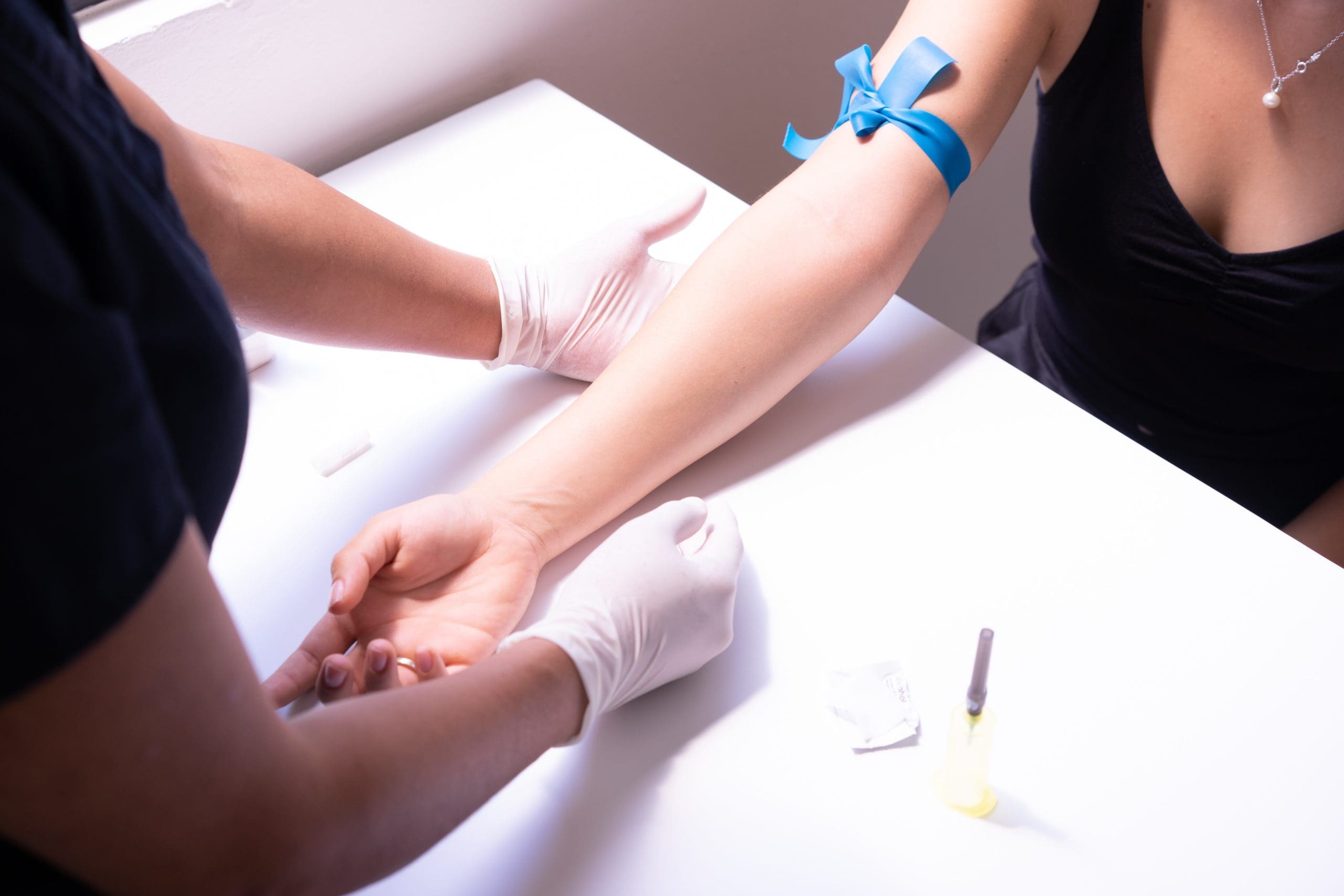In today's fast-paced world, the importance of accessible and high-quality health care cannot be overstated. At My Virtual Physician, we are committed to revolutionizing the way patients receive medical care, making it more convenient, efficient, and effective. As we continue to grow and innovate, we are excited to announce our RegCF (Regulation Crowdfunding) campaign and we would love for you to be a part of this unique transformative journey.
Dr. David Howard, the visionary, founder, and sole stakeholder, has remarkably bootstrapped My Virtual Physician while balancing demanding hours in a hospital's labor and delivery department. Over the past four years, Dr. Howard's dedication and strategic growth efforts have propelled the company to achieve sustainable and substantial success.
Dr. David Howard was born in Jamaica and immigrated to the U.S. at eighteen years old. Dr. Howard received his Bachelor of Arts in Psychology from the Johns Hopkins University and then pursued his Md and Ph.D. in Epidemiology through the Medical Scientist Training Program at the Johns Hopkins School of Medicine.
My Virtual Physician is a national, multi-specialty telehealth company that connects patients with board-certified and licensed physicians through its secure, user-friendly virtual platforms. Our services span various specialties, including primary care, pediatrics, women's health (Gynecology), and more, ensuring comprehensive healthcare solutions for individuals and families across the US.
The healthcare landscape is rapidly evolving, and the demand for telehealth services has never been greater. By launching a RegCF campaign, we aim to:
1. Expand Our Reach: With your support, we can extend our services to underserved communities, providing vital healthcare access to those who need it most.
2. Enhance Technology: Investing in cutting-edge technology will enable us to offer even more innovative solutions and improve patient experiences and outcomes.
3. Grow Our Team: By attracting top talent in the medical and technological fields, we can continue to deliver exceptional care and drive forward our mission of making healthcare more accessible.
Participating in our RegCF campaign means contributing to a future where quality healthcare is
within everyone's reach.
This year our goals are to:
1. Develop New Services: Expand our national reach by adding even more specialty services to offer our patients.
2. Improve Patient Experience: Enhancing our virtual platform and website to ensure seamless and efficient consultations.
3. Foster Community Health: Create initiatives and partnerships that promote health and well-being in underserved communities.
Getting involved in our RegCF campaign is straightforward and accessible. By visiting our campaign page https://netcapital.com/companies/myvirtualphysician, you can learn more about our mission, vision, and growth plan. Your support, whether large or small, will make a significant difference in helping us achieve our goals.
Join Us in Shaping the Future of Healthcare
Thank you In Advance For Your Support,
David L. Howard, M.D., PH.D, CEO, OBGYN
Many Americans faced job losses this year. That means that a lot of families lost their health insurance. That leaves many wondering, can you make a doctor's appointment without insurance?
Doctors and healthcare facilities allow individuals to book appointments without insurance. When scheduling an appointment, patients are asked about who will pay for the services. Without health insurance, it is possible to pay out-of-pocket. If paying for treatment without insurance coverage, it is important to consider factors like necessity and cost.
Here's what you need to know when booking a doctor's appointment without insurance.

Healthcare providers, like doctors, treat patients' health concerns. When it is time to see a physician, the first step is to contact them for an appointment.
To make an appointment to see the doctor, patients will need these things:
Those who are not covered by a health insurance plan can still schedule an appointment. The doctor's office will charge the patient directly instead of billing an insurance company.
Making a doctor's appointment without insurance is just like making an appointment with coverage. In most situations, patients can receive the same treatment.
Sometimes a test or medication is very expensive without insurance. However, doctors will often discuss what treatments or procedures are necessary and how costly they may be. That is why it is good to talk with a doctor even if you don't have insurance.
A recent poll found that about 44% of Americans would not go to the doctor if sick or injured because of the cost.
Many providers offer discounts for cash-paying customers. Others may be able to arrange payment plans. There is nothing more valuable than your health. Skipping the doctor because you don't have insurance is a bad idea.
An average doctor's appointment costs between $68 and $234, according to Debt.org. The charge may change depending on how difficult the condition is and how much time the doctor spends with the patient.
One cost-saving alternative to an in-office appointment is telemedicine. Online doctors offer significant savings to patients, including the expense of time and travel. And some online doctors offer reduced visit fees as well.
Even those with insurance can benefit from saving money on gas and cutting the wait time by booking a virtual physician appointment. All of the top private health insurers offer some telehealth coverage.
My Virtual Physician offers the best in telemedicine services. They regularly add new insurance plans, but those without insurance can see a doctor today for only $49.99. Each patient at My Virtual Physician receives patient-focused, quality care with or without health coverage.
If you've experienced a job change or lost health insurance coverage, check with My Virtual Physician for a doctor near you. Book now with the secure patient portal. And get the care you need.

More than 100 million Americans are living with abnormal blood sugar. Is it possible that you could be one of them? A simple A1c screening blood test shows when levels are too high. Elevated blood sugar means higher risk for diabetes.
A glycated hemoglobin, or hemoglobin A1C, test (HbA1c) is one screening test that checks blood sugar levels. Results show how much sugar is in the bloodstream over time. Testing is accurate since values are not affected by acute illness or stress. A1c screening is recommended for certain populations, including overweight adults and those with other risk factors.
Those thinking about blood sugar testing or wondering about risk factors should talk to their doctor. Here are some common questions about diabetic screening and A1c testing.
The A1c test can detect diabetes because it measures how much sugar, called glucose, is found in red blood cells. The red blood cells give a “glycemic history” of the past 120 days.
Everyone has sugar in their blood. But diabetics have higher levels. Blood sugar that is too high leads to cell and tissue damage.
When someone is diagnosed with diabetes, their doctor will also use the A1c test to monitor how the disease is being controlled.
A1c readings are measured in percentage. Here is what A1c results mean.
Higher blood sugar levels cause greater A1c values, and they equal greater risk for diabetes.
Early detection is key in diabetes because early treatment can prevent serious complications. When a problem with blood sugar is found, doctors and patients can take steps to prevent permanent damage to the heart, kidneys, eyes, nerves, blood vessels, and other vital organs.
Here are the current recommendations for A1c screening.
The CDC suggests A1c screening to know a baseline for:
They further recommend that any woman who has ever had gestational diabetes should have an A1c check every three years even if results are normal.
The USPTF also says that adults over age 45 should be checked for diabetes using the A1c test. Furthermore, it recommends repeat testing every three years.
The ADA also recommends the A1c test, or other diabetic screening, for all adults at age 45 and over. Additionally, it advises overweight individuals with one or more risk factors to be screened, regardless of age. If results are normal, repeat screening is recommended every three years or less.
How to Get an A1C Test
If you meet some of these guidelines, you might be wondering how you can get a screening test.
A primary care doctor or other licensed provider can order this common blood test. Results take as little as a few business days.
Those who do not have a doctor to order the test, can still get this valuable screening. An online doctor or virtual physician can help. Telemedicine providers work with laboratory partners to treat patients without unnecessary trips to an office.
An online physician sends referrals and lab orders just like a brick-and-mortar doctors office. After going to a lab for blood work, virtual doctors offices schedule follow up video visits to go over the results, answer questions, and discuss treatment plans.
If you would like to talk with one of our board-certified physicians, book and appointment today. My Virtual Physician offers health screening, lab tests, and counseling to meet all of your healthcare needs.
If you have suggestions for other topics you want to read about, let us know! Don’t forget to follow us on social media.